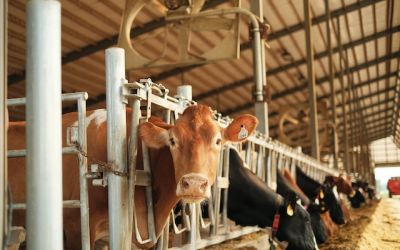Never waste a crisis: sustainable strategies after COVID-19
As policy makers and financial institutions around the world make dramatic and costly moves to address the current crisis, many are also taking aim at the crises of the future.

It was Rahm Emanuel, President Barack Obama’s chief of staff, who argued in the aftermath of the last great period of market turmoil in 2008 that “you never want a serious crisis to go to waste.”
As policy makers and financial institutions around the world make dramatic and costly moves to address the current crisis, many are also taking aim at the crises of the future.
As the market turmoil caused by the COVID-19 pandemic necessitates institutional investors to review their asset allocations and mandates over the coming months, we expect them to embrace invention, in the form of climate and sustainability-tilted smart beta strategies, or what we refer to as Smart Sustainability. This is set to accelerate the already explosive growth of sustainable investing.
Smart beta strategies offer investors a low-cost means of taking a view on factors they believe will generate outperformance over time. Rather than simply tracking an index based on market capitalization, smart beta strategies use a series of pre-determined rules to tilt investment towards stocks based on particular factors such as value, quality, volatility, momentum, or yield.
The approach started to emerge after an earlier market crash. In the dot-com bubble of the late 1990s and early 2000s, tech stocks raced ahead of the wider market before collapsing spectacularly, badly burning many investors including those that were passively tracking well diversified benchmarks.
That lesson ultimately led to the first factor indexes getting serious attention from institutional investors. These were typically “value”-focused indexes using fundamental factors to influence the weight of securities in the index based on objective and consistent rules that are not influenced by market over-exuberance. This had the effect of reducing returns on the way up, but providing considerable downside protection when markets fell.
Over the 15 years or so since smart beta products first saw widespread market acceptance, their popularity has exploded. Assets in factor funds rose from $565bn to $1.2tn in the last five years, according to Morningstar data. Our annual survey of the market last year found that, for the first time, more than half (58%) of asset owners reported allocating assets to smart beta strategies, and more than three quarters (77%) of European asset owners expressed interest in applying ESG considerations to smart beta was up from 55% in 2018.
More recently, another investment approach has also exploded in popularity: the integration of climate risk, and other environmental, social and governance (ESG) factors. Investors increasingly accept that incorporating data on an issuer’s ESG performance into investment analysis can help to reduce risk and improve returns.
These two trends have come together. We are finding that over the last couple of years a growing number of institutional investors have taken the opportunity to integrate certain sustainability parameters—usually climate related but sometimes other ESG measures, too—when they have awarded new smart beta mandates. Over the last couple of years this has become a majority, the new normal, for new asset owner smart beta mandates.
This trend will benefit from the apparent relative outperformance of sustainability indexes during the recent COVID-19 sell-off.
Many sustainable smart beta strategies employed to date have focused on climate change. Certainly, the impacts of global warming and of the policies needed to reduce greenhouse gas emissions will be a major driver of performance for a growing number of companies. But we expect investors to also seek to increasingly reflect other factors in new smart beta mandates, including Sustainable Development Goals strategies.
The COVID-19 pandemic will inform the issues that investors choose to focus on. Social considerations have, in the past, garnered less attention than environmental and governance concerns, but that could change. Resilience will be a growing concern. To date, it has mostly been considered in regard to the low-carbon transition and exposure to physical climate hazards such as flood and drought; issuers’ resilience to a wider range of disruptions will be a priority.
The contours of the post-COVID global economy have yet to come into sharp focus. But what is clear is that investors are taking a hard look at how they expect to generate returns in the new normal; smart sustainability strategies are likely to be an increasingly popular method of their doing so.
To learn more about FTSE Russell click here.
© 2020 London Stock Exchange Group plc (the “LSE Group”). All information is provided for information purposes only. Such information and data is provided “as is” without warranty of any kind. No member of the LSE Group make any claim, prediction, warranty or representation whatsoever, expressly or impliedly, either as to the accuracy, timeliness, completeness, merchantability of any information or of results to be obtained from the use of FTSE Russell products or the fitness or suitability of the FTSE Russell products for any particular purpose to which they might be put. Any representation of historical data accessible through FTSE Russell products is provided for information purposes only and is not a reliable indicator of future performance. No member of the LSE Group provide investment advice and nothing contained in this document or accessible through FTSE Russell products should be taken as constituting financial or investment advice or a financial promotion. Use and distribution of the LSE Group data requires a licence from an LSE Group company and/or their respective licensors.


_400_250_80_s_c1.jpg)



